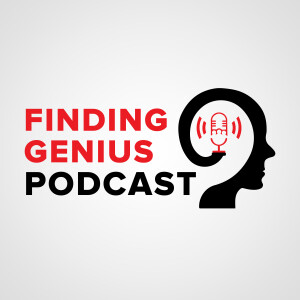
Circadian Rhythm Cancer Treatment with Brian Altman
 2020-08-15
2020-08-15
Cancer cells disrupt the body's circadian clock. Researcher Brian Altman works to understand why and how this happens and what therapeutic findings may result.
He tells listeners
- How our 24-hour cycle works and how cancer cells create a type of circadian rhythm disorder,
- Why cancer cells gain an advantage over other cells under this circadian rhythm disorder, and
- Why this information could prove useful in fighting cancer with circadian rhythm cancer treatments.
Brian Altman is an assistant professor in the Department of Biomedical Genetics at the University of Rochester Medical Center. He's always been interested in the metabolism of cancer and did a post-doc that involved the circadian clock and rhythms.
He describes his lab's basic interest as centered on this disruption of normal circadian rhythms by cancer, which gives the tumor cells an advantage over normal cells by allowing them to outcompete the normal cells. This, they hope, is something that can be taken advantage of and manipulated.
He makes the connection for listeners between our circadian clock and metabolism and explains that cancer wants to engage in maximal metabolism all the time; therefore, this trend may break the circadian clock. Studies on mice allowed them to ask which genes are mutated in cancer that might impact the clock and they've focused on a cancer gene called MYC. This gene cranks up the biosynthesis of some cancers.
He explains that the two main focuses of the lab's work includes identifying which tumors disrupt the circadian clock and how they can use this to inform therapeutic choices. Finally, he adds that they're getting close to showing that slowing the circadian clock can slow the growth of tumor cells. They are investigating the best way to restart the circadian clock in patients who've been disrupted by cancer to slow this cell growth.
See his lab's website to find out more: urmc.rochester.edu/labs/altman.aspx.
Available on Apple Podcasts: apple.co/2Os0myK
More Episodes
Create your
podcast in
minutes
- Full-featured podcast site
- Unlimited storage and bandwidth
- Comprehensive podcast stats
- Distribute to Apple Podcasts, Spotify, and more
- Make money with your podcast
It is Free
- Privacy Policy
- Cookie Policy
- Terms of Use
- Consent Preferences
- Copyright © 2015-2024 Podbean.com






